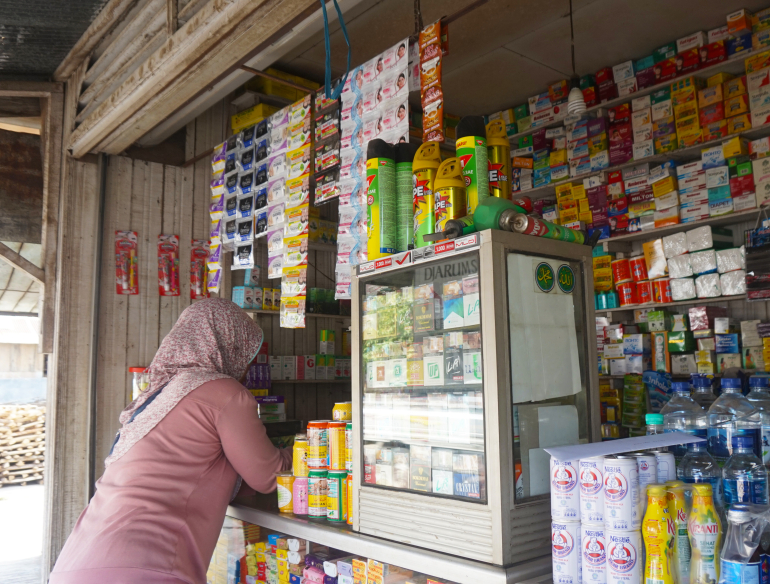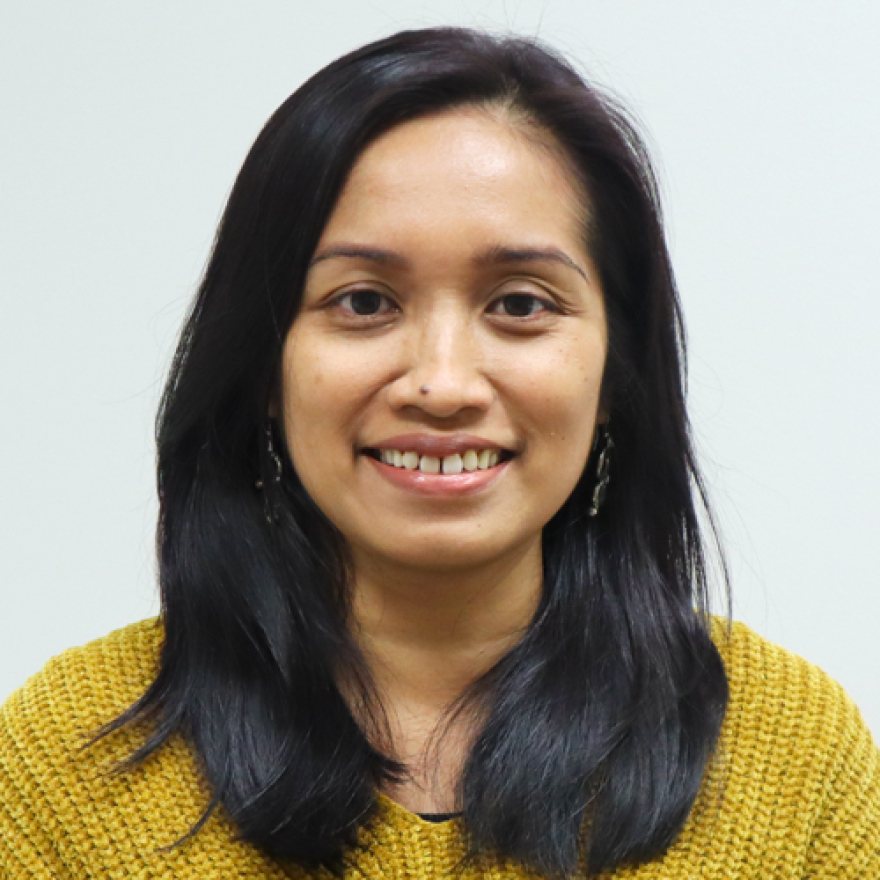According to the WHO, Southeast Asia is at the highest risk globally for the emergence and spread of antimicrobial resistance (AMR) due to the widespread inappropriate use of antibiotics and weak systems of governance in health and agriculture. As the largest country in the region with around 270 million people, most of whom obtain their antibiotics without a prescription from pharmacies and drug stores, Indonesia has a major role to play in addressing the inappropriate use of antibiotics and curtailing the threat of AMR.
The overall aim of the study is to improve the use of antibiotics by private drug sellers (PDS) in the community so they can become closer partners in the fight against AMR. We will design and evaluate a multifaceted intervention to improve antibiotic dispensing practices among PDS in West Java and South Kalimantan Provinces of Indonesia. The intervention includes: online and face-to-face training of staff on AMR, antibiotic use, and counselling skills; provision of fact sheets to pharmacy staff on antimicrobial resistance and appropriate antibiotic use; branding and certification of pharmacies; and an education campaign amongst pharmacies and their clients on the appropriate use of antibiotics using multimedia materials.
Phase 1 includes formative research to (i) understand the context in which PDS operate and the factors influencing their antibiotic dispensing practices and (ii) determine the baseline prevalence of non-prescription-based antibiotic sales. These results will inform the design of the PINTAR intervention (see above) which will be evaluated using a controlled before-and-after design (Phase 2). The primary outcome (% of antibiotic sales without prescription) will be measured using standardised patients or SPs (also known as mystery shoppers). The SPs present three clinical cases to drug outlet staff: parent of a child at home with diarrhoea; an adult with presumptive tuberculosis (TB); and an adult with upper respiratory tract infection (URTI). A process evaluation and economic evaluation will also be conducted to measure the reach, uptake, and cost-effectiveness of the intervention. These activities are being conducted in partnership with the district health office (DHO), the Indonesian Pharmacy Association, and the Indonesian Pharmacy Technician Association.
Our formative research (Phase 1) shows that despite existing regulations, over two- thirds of visits to drug outlets (69%) resulted in the sale of at least one antibiotic without a prescription. Although first-line antibiotics such as amoxicillin and co-trimoxazole were the most widely dispensed antibiotics, it is of concern that second-line antibiotics including cephalosporin were dispensed without prescription. It was also troubling to see that SPs feigning presumptive TB were offered antibiotics that are not recommended for the treatment of TB and that antibiotics such as fradiomycin/gramicidin, often in the form of a lozenger, were widely used for URTIs. Interviews revealed that inappropriate antibiotic dispensing was driven by strong patient demand for antibiotics, unqualified drug sellers dispensing medicines, competition between different types of drug outlets, drug outlet owners pushing their staff to sell medicines, and weak enforcement of regulations. Phase 2 of the study (intervention evaluation) is underway.
Results from the formative research (Phase 1) have been fed back to the Indonesian government and other stakeholders, helping to bring about the inclusion of private drug retail outlets in the national action plan that was translated into the Decree of Minister of Coordination of Human Development and Culture in 2021. Other impacts can be found on our project website.
The Indonesian Ministry of Health; Universitas Gadjah Mada; Universitas Sebelas Maret; London School of Hygiene and Tropical Medicine; The George Institute for Global Health; University College London.
Australian DFAT Indo-Pacific Centre for Health Security Scheme.




